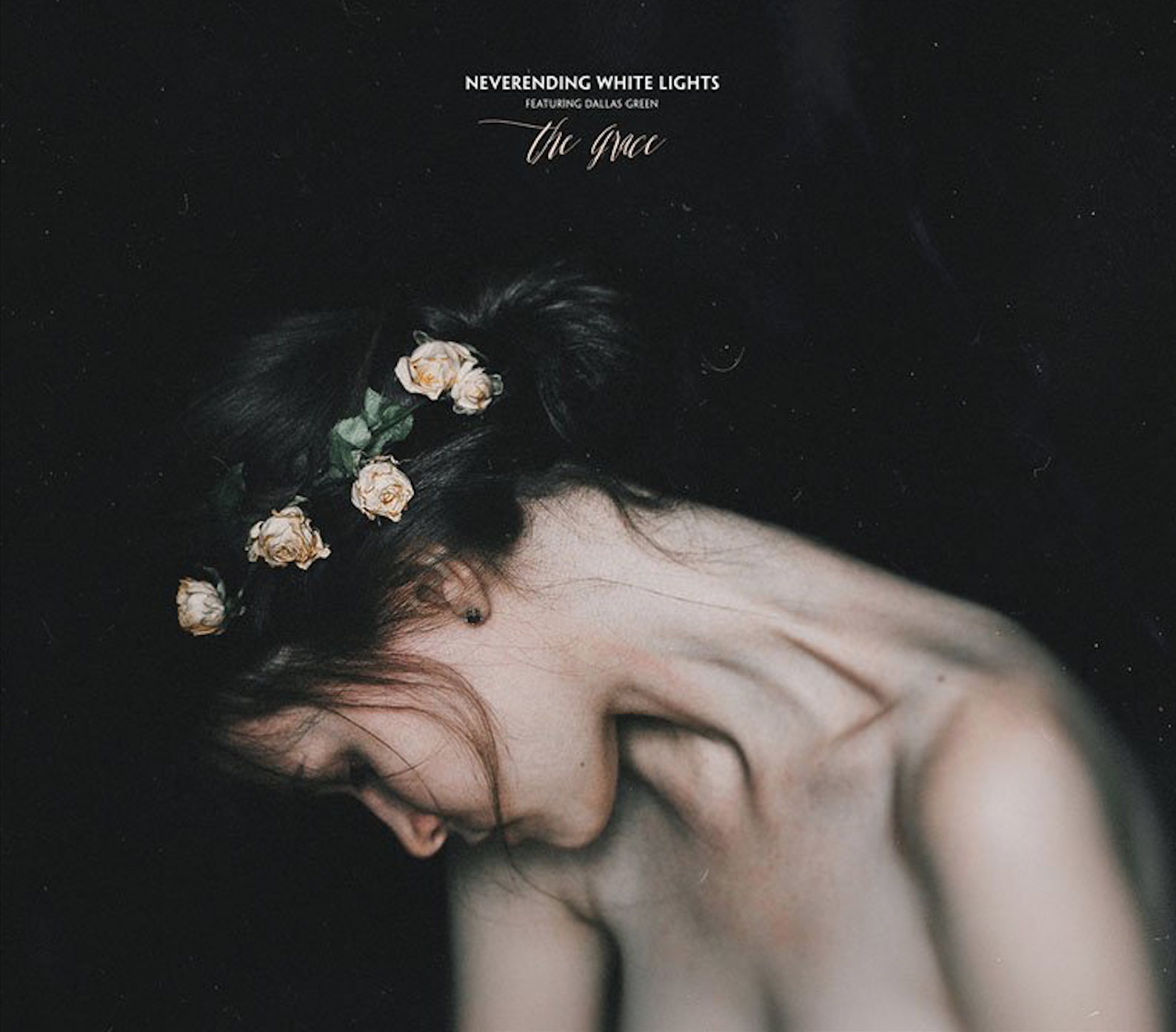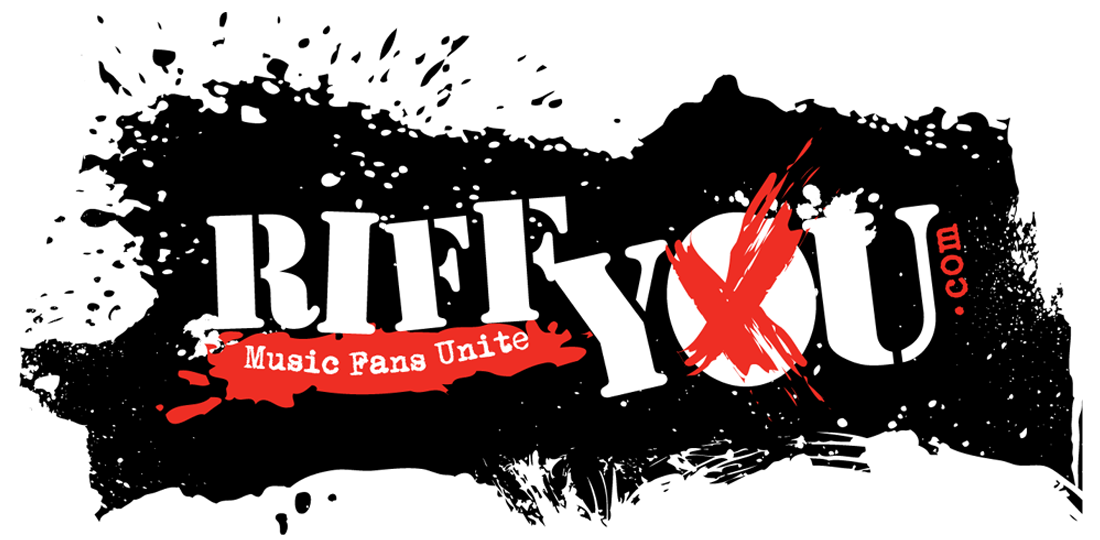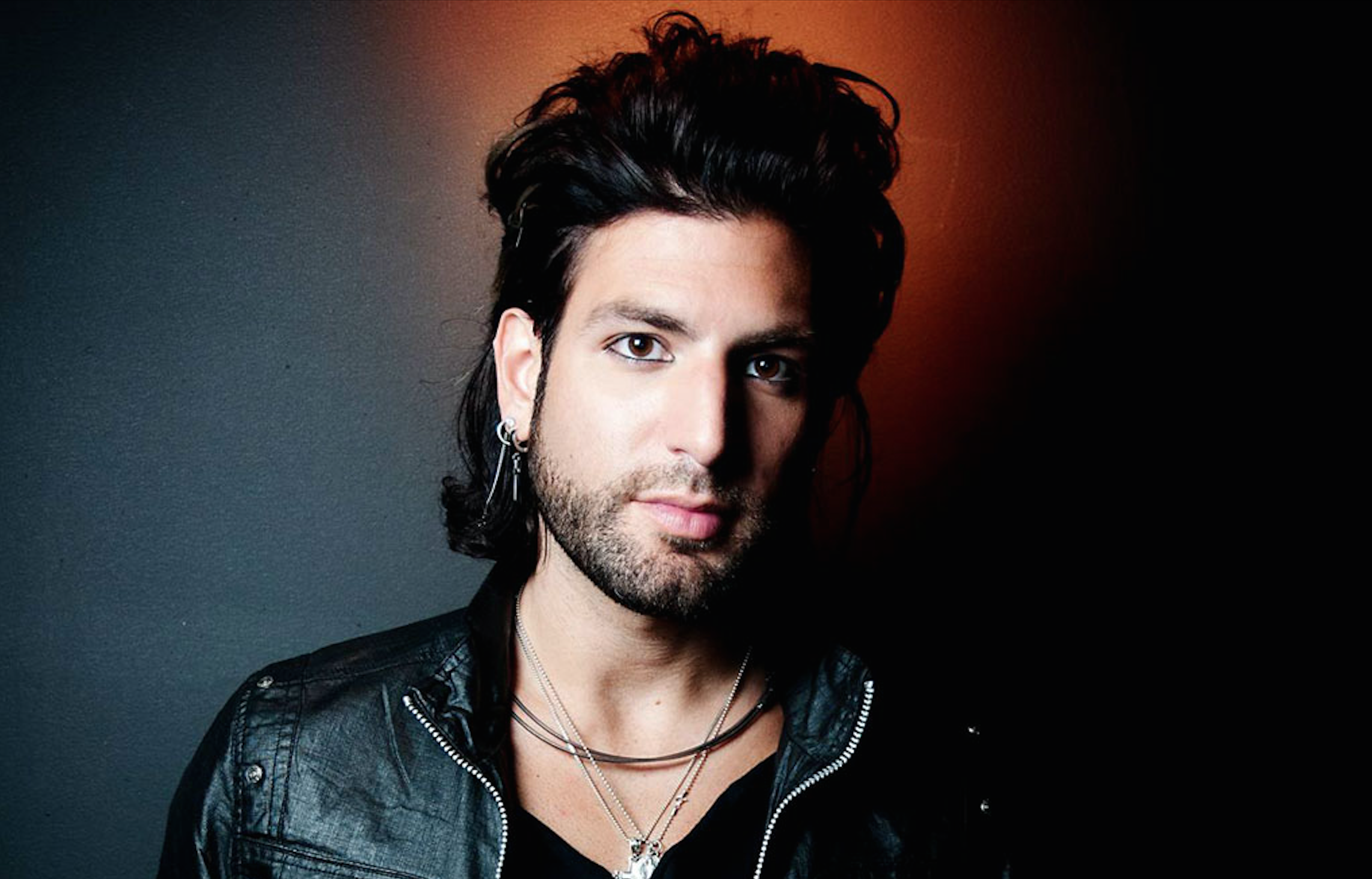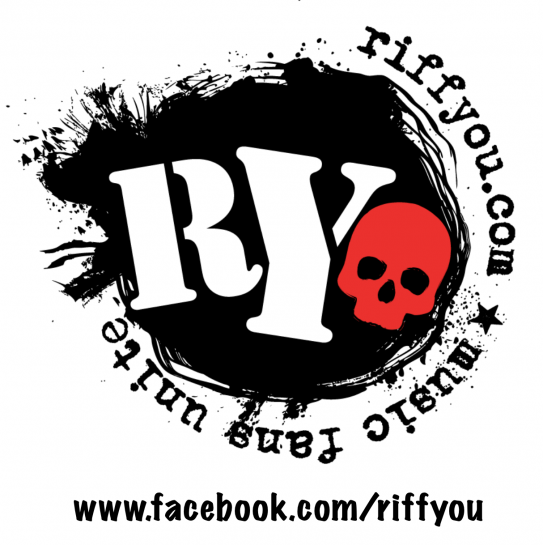Q&A: Neverending White Lights Fondly Revisit “The Grace”
“The Grace” is that song for the creative visionary of Neverending White Lights, Daniel Victor – it was the one that changed his life forever. Appearing on 2005’s ACT I, “The Grace” featured Victor’s vast musical execution and the expansive voice of Dallas Green, who at that time considered Alexisonfire his full-time gig and wasn’t yet recognized as the solo force that he is today with City and Colour.
To this date, “The Grace” remains as emotionally potent and creatively forceful as it did when it first emerged. Perhaps, that is one of the reasons why Dine Alone Records recently opted to re-issue “The Grace” on a 10″ vinyl, with “The Fate” serving as its B-Side.
Riffyou.com caught up with Victor to discuss the vivid origins of “The Grace,” his initial impressions of Green, the wide-ranging impact of the song, how it shifted Victor’s career and if this vinyl release will lead to others down the line.
RY: Firstly, can you believe that “The Grace” is now 10 years old? Does it feel that aged to you?
Daniel: “Ten years can go by fast, though I don’t feel my music is affected much by time because I don’t follow trends when I write. I’ve never been pinned to a genre. I make music for myself, and I believe it exists completely out of time, in it’s own world. When I first played ‘The Grace’ for my manager he said, ‘You know what, this song is timeless.’ That moment stuck with me ever since. I thought, “Wow, what a compliment. What makes a song timeless?” There are songs that last a lifetime and I think they’re made up of certain ingredients; depth, emotion, honesty, originality, and a connection with people. Performing ‘The Grace’ now feels as fresh as it did at our first show, and listening back to it lately has had even more of an impact on me than when it came out.”
RY: To this day “The Grace” remains as beautiful as it did when it first came out. What do you recall most about the process of creating that song?
Daniel: “After working with Dallas Green on one of my earlier demos, I was left thinking that his voice was a really incredible translation of my music. I felt I needed to write something powerful for him to sing, and I had been contemplating that for a couple weeks. My first album was due out, and I was waiting for the right song to surface.
“It was about 9pm in the evening on a humid Thursday in August. I was pulled to the piano and the song rushed out in 20 minutes. It sounded very familiar to me, I swore I had heard it somewhere before.
“When those things happen, they are like these spiritual entities inside you, and these ghosts need to escape. That’s what songs are. Trapped ghosts. And they are exorcized by the writing process. By picking up an instrument and a pen. They make their way out. They’re hard to conjure up on demand. They don’t like that. They have to be ready and find you. They always let you know because they scratch at you. Or wake you up from a dream.
“That studio session in St. Catherine’s was quite memorable. Singing the melody with Dallas and watching him bring the song to life was very organic. We had no idea that it would end up being such a treasured piece by so many. I’m very happy to say that it all came from an honest place. No labels or pressure. Just the beauty of collaboration.”
RY: Was there a particular event or person that inspired the song? Or, was it more of a fictional tale being told?
Daniel: “I was always fascinated with the idea of existence itself. I had always felt this deep longing for answers that our ideas of heaven and hell, religion and spirituality never fully satisfied. The lyrics are a story about a person finding their place in this world, struggling with life. We all go through that, especially in times of heartache or tragedy. Asking angels for help is a cry for help in a time of desperation. Longing to be happy, safe, and free from lonlieness – whether in life or in death. Or in another existence entirely.”
RY: Once the final mix of the song was completed and you listened back to it, what emotions were felt?
Daniel: “I think the greatest moment of making an album or song is the moment it’s finished and you realize you’ve accomplished what you set out to do. It’s knowing you’ve created something out of nothing, and even if no one hears it, it exists just for you. I don’t often release a lot of the music I write. Some of the most beautiful songs I’ve created become experiences for me to listen to and emote over on my own. That’s often enough.
“’The Grace’ was fittingly the last addition to the album, and after listening back I felt like we really had something special. If felt familiar, as though I had heard it before, almost like deja vu. I was very focused on the album as a whole, so I wanted to make sure that the ACT 1 album told the story it was supposed to as a consistant conceptual body. Each song played a role in this, and it was hard for me to separate them from each other and pick ‘singles’. My label team chose ‘The Grace’ to be the first single, and I was alright with that, but I didn’t think it was going to impact people the way it did. It was very personal, like ‘This is just for me, they all won’t like it..it’s probably too slow and emotional for all the rock radio listeners.’ But as it turns out…a lot of people have a sensitive side.”
RY: Considering the radio and TV support the song had, it must’ve struck a big chord with lots of people. Have you determined why the song connected as well as it did? And continues to?
Daniel “I was very lucky to have all the TV and radio support. The biggest obstacle as an artist is getting your music heard at all. The major platforms are a key way to do that, and it’s a very slim margin of new music that gets supported. When it came on the radio it sounded much different than anything else. It was very slow and brooding, where most of the radio stuff was quite upbeat. It stood out. I believe it’s success was attributed to it’s emotional power. It connected with so many people on so many different levels. I received a lot of letters and stories from people who were affected by it, saying it got them through a hard time, a break up, the death of a loved one, etc. It was a healing song and that is why it struck such a chord. A lot of mainstream music simply can’t penetrate your soul like that, and I think these types of songs only come around once in a while.”
RY: The song obviously brought more attention to your art. How did you react to “The Grace” bringing such a spotlight upon you?
Daniel: “My life changed quite drastically. After the video release, it was hard to go places where people didn’t recognize me as being the character from the video. I wasn’t used to any of that. ‘The Grace’ was the first thing I had ever released, and I had to grow into becoming the front man for a project that was never supposed to have a front man. In fact, the entire concept was based on being a behind-the-scenes producer and writer – a musical ‘director’ so to speak. But, there was this sudden demand for NWL to play live across the country. Shows started selling out before I even had a band together. It was rushed. Our first year of touring was just trying to keep up and get through it.
“It was difficult to get comfortable with the popularity at first because there was no preparation for it. My first experience at the MMVA’s was quite memorable. I had performed a sold out show in Detroit that afternoon with Dashboard Confessional and the Yeah Yeah Yeahs. I flew into Toronto and was rushed to the red carpet in the back of a 1950’s purple hearse, with a girl dressed as an angel next to me. I did my walk through and went inside to snack on some food, where I ran into Rhianna and Paris Hilton, chatting about Paris’ new album. As the three of us were making small talk around the M&M’s I thought, is this a normal day now? That whole sort of scene was very new to me. I didn’t know how I felt being on that side of the television. My whole life prior was spent in a basement studio, since I was five years old. The transition took some getting used to.”
RY: Back in 2005, did you know even then that Dallas would become what he has?
Daniel: “A mutual friend of ours named Marco from the band superGARAGE played me Dallas’ demos for the Sometimes album. He said ‘That kid from Alexis can really sing. Yo u have to get him on your album.’ Alexisonfire was building a solid fan base at the time, and Dallas had yet to fully reveal who he was as a solo artist. I definitely knew that he had something special and peo
u have to get him on your album.’ Alexisonfire was building a solid fan base at the time, and Dallas had yet to fully reveal who he was as a solo artist. I definitely knew that he had something special and peo ple were going to love him. I knew the second I heard him.
ple were going to love him. I knew the second I heard him.
“He recorded a few tracks of the Sometimes album in my basement. The songs were honest, stripped back, and quite charming. I listened to that album a lot when it was done because I just loved the sound of his voice. I wasn’t sure whether or not the world was going to embrace him to the point of stardom, or if this was destined to just be a side project for him. As I’ve watched him grow his legacy, I’ve remained very happy and proud of him.”
RY: Why did it make sense for you to revisit “The Grace” in vinyl form?
Daniel: “I love records and I have yet to release any of my NWL material on vinyl. We wanted to do something special for this anniversary, and I think because this is a song that so many people know and love, it makes sense to give them something to hold on to – something they can treasure. Digital files are fine, but they lack the tangible aspect of vinyl. They seem more disposable. This song has become a part of so many people, it should be available as something they can keep, feel, and touch.”
RY: Could you tell us more about the B-Side, “My Fate”?
Daniel: “’My Fate’ was written for Dallas to sing previous to ‘The Grace.’ Since the concept of ACT I was spirituality, existence, and longing – this was another piece to that puzzle. ‘Hard to live in doubt, harder to explain, white lies that come untied, this is my fate…’ – you can see some of the same themes as ‘The Grace.’ Fate itself is an interesting concept, some people believe in it and some don’t. I think when we do, we tend to live our lives differently because we chalk everything up to it. But really, I believe we create our own fate by the decisions we choose every day.
“Dallas really liked the song when he first heard it, and it came to life in an evening’s work in the studio. It only took him a few takes to the vocals locked down, and his delivery carried the meaning of the song quite well. The session for that song was actually a lot of fun. I had just met Dallas for the first time and I hadn’t realized how witty he was. Our humour is very similar, very sarcastic and quick. We spent a big part of that evening making each other laugh, which I think is an important counterbalance to being emotional and serious all the time.
“When I realized his voice was that emotive, I wanted to aim higher. ‘My Fate’ is a good song, but it’s not a great song. I wrote ‘The Grace’ for him to sing after this to capture that power, and it was the right thing to do. Afterwards, ‘My Fate’ got locked away in its unfinished state for a decade. This week is the first time its been unearthed and released to the public.”
RY: What is one thing about “The Grace” that people don’t know?
Daniel: “Most people probably don’t know the song isn’t a love song. It has many interpretations, as all art should, but it was written about someone contemplating wanting to die. Not in a dark way, more in a transcendent way that someone could want to exist somewhere else other than Earth. Life can be difficult and painful and wanting to escape that is normal. We all do it in our own way, we are escapists. If it’s through drugs or alcohol. Or food or reality television or the movies. We distract ourselves from our misery and pain. The character in ‘The Grace’ is looking for a way out, and they understand it could be through death or in an afterlife. Or in a parallel universe somewhere. Its original title was ‘The Grace Of A Happy Death’…which I shortened to ‘The Grace’ because that was just way too bleak of a title. I tend to look at these realities through a soft lens, and I’m open to darker things that most might be scared of. There’s nothing to fear, death is a part of life and we should embrace the reality of it. The story is really a reflection of a contemplation we have all had – a person asking his angels to guide him in his absolute lowest hour.”
RY: What does “The Grace” mean to you on a personal and creative level?
Daniel: “The song represents many things to me. I think it’s a great example of how powerful the perfect combination of music and singer can be – how a certain voice can bring lyrics and melody to life. If ten different people sang it, it would have a different effect in every version, even though it’s the same song. It’s like what Ryan Adams recently did with Taylor Swift’s album – same music, but the voice really pulls it somewhere else. Dallas was the right fit for ‘The Grace’ and I think our work together is powerful. I’d love to make a record with him at some point, or even write something new.
“’The Grace’ is also my most popular song. It introduced the world to my music. It will always be an important part of my life because of that. Not to mention it was my first single after waiting 25 years to release my music into the world. I think it was a strong introduction to what I do and who I am as an artist. But, it’s still only the beginning.’
RY: It’s selfish request time: would you be able to release a 7″ or 10″ vinyl featuring “Always” and “Where We Are”? I think that’d be awesome!
Daniel: “That sounds like a great idea! I do believe the entire trilogy of albums (ACT I, II, & III) will be available on vinyl soon. I’m working on that.”
-Adam Grant
Please be sure to follow us on Twitter @riffyou and at Facebook.com/riffyou.


































